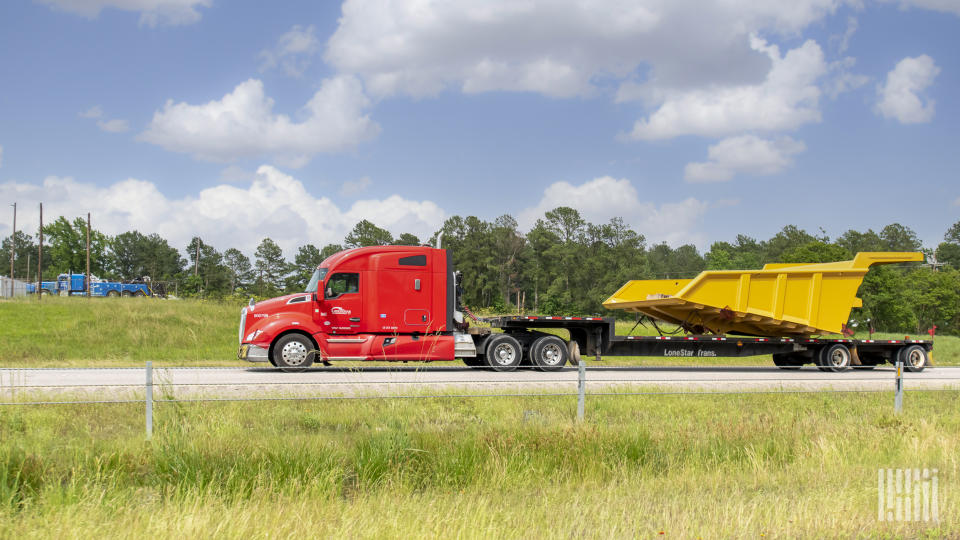Daseke sees weak freight market for rest of 2023

Daseke Inc. officials said the freight market may have bottomed out in the second quarter, as the company reported year-over-year (y/y) declines in revenue and earnings per share.
“Today, Daseke’s updated outlook now assumes no improvement in current freight market conditions in the second half of the year,” CEO Jonathan Shepko told analysts during a call on Thursday. “The supply-demand relationship remains unbalanced, with demand elusive and carriers exiting the industry at a much more sluggish pace than they entered the market in 2021 and 2022.”
The Addison, Texas-based flatbed and specialized transportation provider posted second-quarter revenue of $407 million, a 15.3% year-over-year decline compared to the same period last year.
Daseke (NASDAQ: DSKE) recorded net income of $6 million in the second quarter, or 7 cents per share, a 71% y/y decrease compared to $18 million, or 24 cents per share during the same period in 2022.
The company missed on key Wall Street estimates, which called for earnings per share of 24 cents and revenue of $423 million during the second quarter.
Daseke’s adjusted earnings before interest, taxes, depreciation and amortization is now forecast in a range of $200 million to $210 million for 2023, modestly lower than the previously guided range of $210 million to $220 million.
Shepko said the company’s flatbed operations in the Pacific Northwest saw “demand degradation” in the building materials market.
“In the Pacific Northwest … about 30% or so of our overall portfolio is made up of construction, and probably 20% of that is residential-facing,” Shepko said. “A lot of that material sits in the Pacific Northwest, so they do a lot of building materials … roofing shingles, lumber, and we just haven’t seen inventory drawdowns up there at the kind of retail or supplier level or at the manufacturing level, wholesaler level. So things are absolutely sitting there.”
In comparison, Daseke’s flatbed operations in the Southeastern has been producing better results.
“Our Southeast flatbed segment, which is probably about 80% of our total Southeast composition, did very well,” Shepko said. “They executed and drove improved productivity. They looked to diversify their end markets and get out of more volatile end markets. They picked up additional dedicated business. They’re really shifting their sales teams to find more dedicated business to provide that kind of baseload and that resiliency.”
Shepko said to offset the weak freight market, the company tightened its balance sheet and enhanced its EPS — using excess cash to reduce higher-cost components of its capital structure, reducing gross debt and lowering ongoing costs.
“We remain focused on improving our operational efficiency and leaning into our asset-right strategy to dampen the impact of the contracting freight environment from its historic highs of the second quarter of 2022,” Shepko said.
The post Daseke sees weak freight market for rest of 2023 appeared first on FreightWaves.
